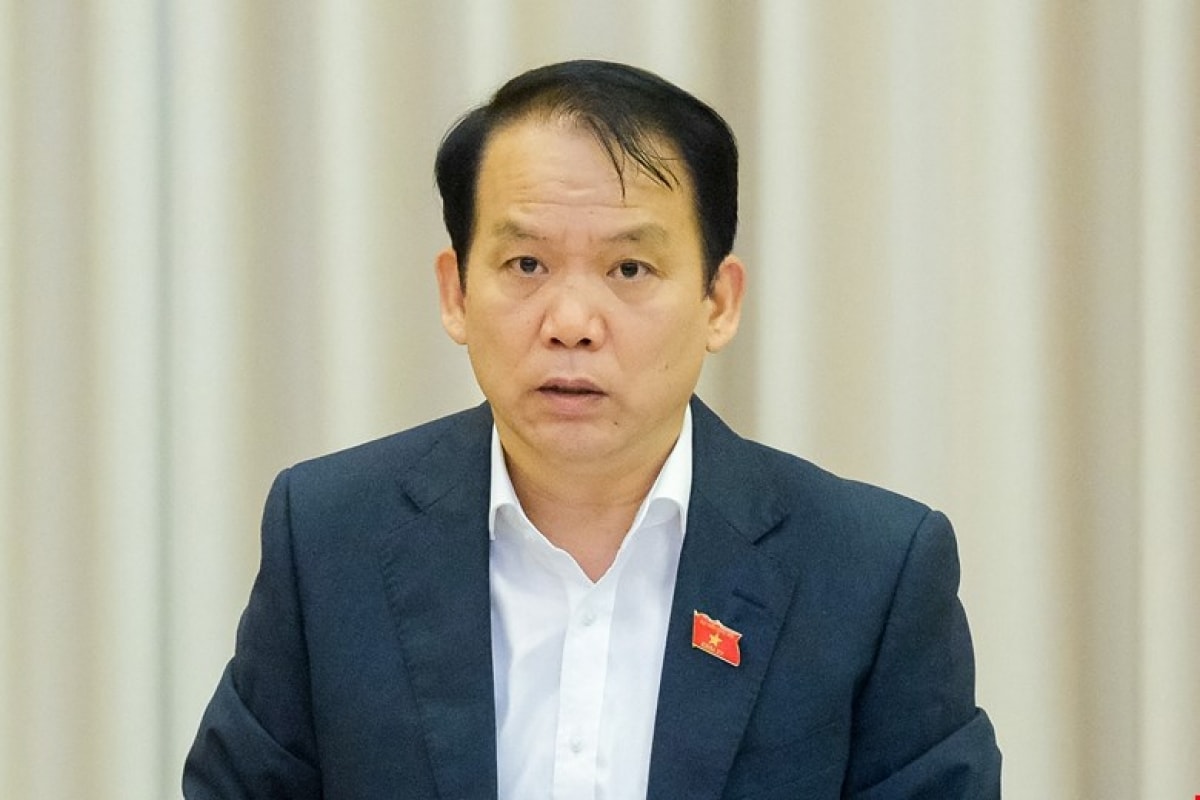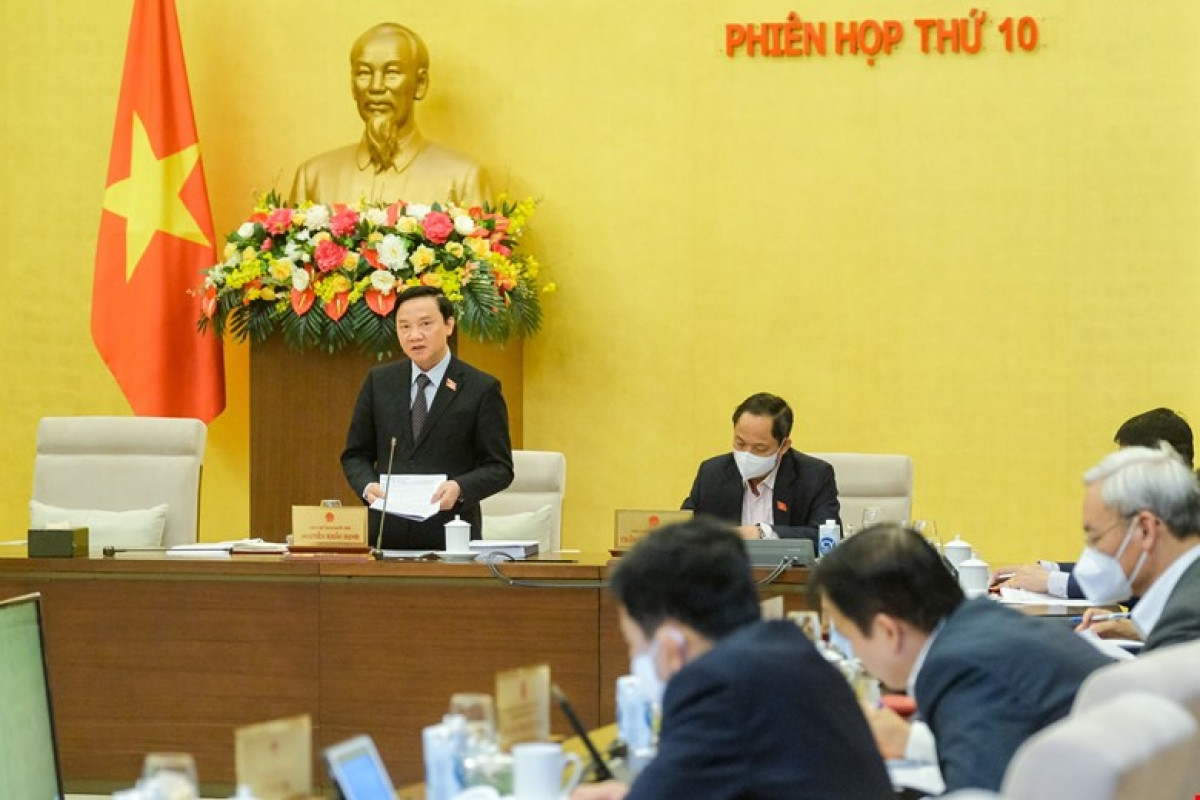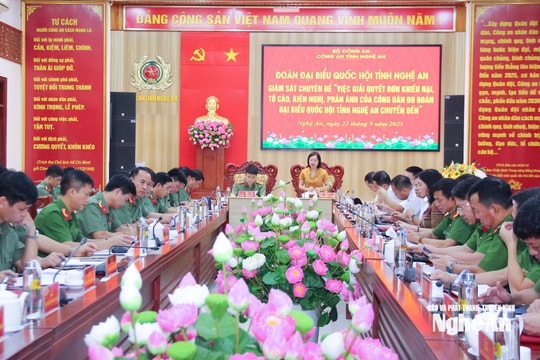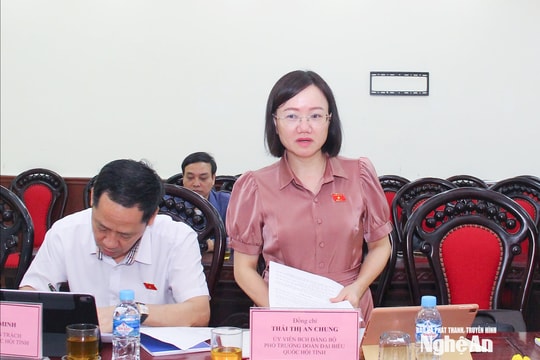Debate on whether to abolish district-level inspection agencies or not
The majority of opinions in the agency reviewing the draft Law on Inspection (amended) agreed with the proposal not to organize district-level inspection agencies. However, many opinions in the National Assembly Standing Committee disagreed.
At the 10th session (afternoon of April 18), authorized by the Prime Minister, Government Inspector General Doan Hong Phong presented the Government's Report on the draft Law on Inspection (amended) for the National Assembly Standing Committee to comment. One of the contents that received special attention was whether or not to organize district-level inspection agencies.
Different opinions
Examining the specific content, Chairman of the Law Committee Hoang Thanh Tung said that the draft law maintains the system of organizing inspection agencies according to administrative levels including the Government Inspectorate, Provincial Inspectorate, and District Inspectorate. Through discussion, the Standing Committee of the Law Committee basically agreed on the organization of the Government Inspectorate and Provincial Inspectorate as present, while there were two different opinions on the organization of District Inspectorate.
 |
| Chairman of the Law Committee Hoang Thanh Tung. Photo: National Assembly |
The first type of opinion suggests not to organize an inspection agency at the district level. The reason given is that the summary report on the implementation of the Inspection Law has clearly shown that at the district level there is not much need for inspection, the staff is very small, so it cannot be effective.
Not organizing at this level helps reduce the number of specialized agencies under the People's Committee at the district level (713 District Inspectorates), in line with the Party's policy on streamlining the organizational apparatus, reducing staffing as well as overcoming the "even" situation of staffing of district-level inspection agencies, supplementing human resources to improve the quality and efficiency of provincial-level Inspectorates.
The abolition of the district level still ensures the principle of "where there is management, there is inspection" because when there is no organization of district-level inspection agencies, the inspection functions and tasks of this agency will be transferred to the Provincial Inspectorate. Moreover, centralized management of inspection forces at the local level is convenient for training to improve professional qualifications and standardize professional titles.
The second type of opinion agrees with the draft Law to continue maintaining the current District Inspectorate because it believes that the administrative inspection organization at the district level has had a long-term stable formation and development process and is still basically suitable today.
It is necessary to maintain and strengthen the administrative inspection agency at the district level to advise and assist the district People's Committee in inspection work, anti-corruption and negativity, receiving citizens, and resolving complaints and denunciations; ensuring strict compliance with the principle "where there is management, there is inspection".
Maintaining the District Inspectorate model also ensures compliance with and effective implementation of the provisions of the Law on Organization of Local Government, the Law on Complaints, the Law on Denunciation, and the Law on Anti-Corruption because these laws all assign certain tasks and powers to the District Inspectorate.
The current shortcomings in the organization and operation of the District Inspectorate are not due to the institution being no longer suitable, but need to be addressed to ensure sufficient conditions and capacity to complete assigned tasks.
"The majority of opinions in the Standing Committee of the People's Council agree with the first type of opinion" - Mr. Hoang Thanh Tung said.
Need to research carefully and argue convincingly
Leading the discussion on this content, Vice Chairman of the National Assembly Nguyen Khac Dinh noted that whether or not to abolish the district-level inspection agency is related to many other laws. The inspectorate not only conducts inspections but also helps the district People's Committee make complaints and denunciations, and prevent corruption.
“If we remove the district inspectorate, who will help the district do those things? This requires a basis. Not to mention, the district is now as large as Thu Duc City, 3 districts combined have a very large population, so much work. Or if Ha Long City merges with Hoanh Bo District, Hoanh Bo District alone is as large as Bac Ninh Province. If the district does not have an inspectorate, and the inspection function is left to the province, many laws will have to be amended,” Mr. Nguyen Khac Dinh noted.
 |
| Vice Chairman of the National Assembly Nguyen Khac Dinh chaired the discussion session on the draft Law on Inspection (amended). |
Head of the Delegation Working Committee Nguyen Thi Thanh said that when it comes to district-level inspection, there are opinions that it is still a formality, but the reason is that the organization is not good and the force is still thin. Therefore, she agrees with continuing to maintain the current inspection system at all levels, including district-level inspection, but it is necessary to strengthen organizational innovation and improve the efficiency of district-level inspection. Because if cases are resolved right at the grassroots level, they will not arise, be stagnant, cause prolonged frustration, or be pushed around and become a burden for superiors.
National Assembly Standing Vice Chairman Tran Thanh Man also raised the issue: “We should not abolish it, because district-level inspectors represent the state to inspect the implementation of socio-economic development tasks in localities, resolve complaints and denunciations... If district-level inspectors are abolished, who will do this? This is an issue we must study carefully.”
Meanwhile, according to Vice Chairman of the National Assembly Tran Quang Phuong, district-level inspection is an indispensable level. The organization of the inspection system in our country is currently "inverted cone", while the inspectors at the district level have fewer staff but more work. The Vice Chairman of the National Assembly suggested that it is necessary to organize 3 levels and furthermore, to improve the capacity of the district level because the population and area of many districts are equivalent to those of provinces and cities.
"I think this issue should be discussed by the National Assembly, not finalized yet" - National Assembly Chairman Vuong Dinh Hue expressed his opinion and said that the important thing is to argue why there are 2 or 3 levels to convince, because each type of opinion has its own reasoning.
Concluding this content, Vice Chairman of the National Assembly Nguyen Khac Dinh said that the National Assembly Standing Committee basically agreed to maintain the 3-level model, which is the Government Inspectorate, Provincial Inspectorate and District Inspectorate. At the same time, it is proposed that in the entire law, the function of preventing and combating negativity of the inspection sector be added.
“Currently, there are only three functions: Inspection; anti-corruption and handling complaints and denunciations, and receiving citizens. It is necessary to add the function of anti-negativity, because the Central Steering Committee on anti-corruption has already concluded this issue,” Mr. Nguyen Khac Dinh emphasized./.






.jpg)

